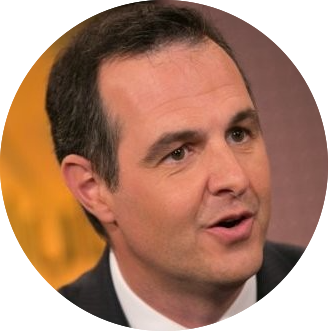

These days, you would be hard-pressed to find anyone whose job hasn’t changed because of COVID-19. And since payroll plays a major role in customers’ careers, we wanted to explore the ins-and-outs of how the “new normal” is impacting this subsector of fintech.
Today we caught up with DailyPay Chief Innovation Officer Jeanniey Walden to gain a better understanding of what the payroll and benefits space looks like in 2020.
The recent public health crisis has altered our way of life in many ways. How have you seen it change the employee benefits and payroll space?
Jeanniey Walden: The public health crisis changed everything about life as we knew it, overnight. This impacted every aspect of the workplace, especially in the employee benefits and payroll space. Business leaders had to reimagine, redevelop, and re-engineer how every element of their business works, while simultaneously supporting time-sensitive matters including payroll. The pandemic also drove HR and payroll leaders to leverage technology to design successful remote workforces, leveraging video, virtual coffee dates, mindfulness support and more. They also need to ensure employees were well taken care of, as dynamically and normally as possible, in a new world. On-demand pay is one of the technologies HR and payroll leaders pushed to the forefront in the payroll space supporting not just their employees’ financial needs during the pandemic but also the entire household. Concerns over access and timing of pay were eliminated with the adoption of this new technology.
In fact, DailyPay’s on-demand pay usage has been selected for use by 80% of Fortune 100 companies offering on-demand pay during the wake of the pandemic. And as many Americans became financially insolvent, a recent study indicated a 30% increase of on-demand pay usage relating to an increase in household dependency on a DailyPay user. To exacerbate the problem, unemployment benefits and deferral housing protection are expected to end in July, leaving many people scrambling to find more income.
We expect the changes in payroll and benefits will continue to evolve the hopes of alleviating financial stress as we try to acclimate to our new normal.
In what ways does the traditional payroll process have to reinvent itself to fit into the post-COVID digital era?
Walden: Throughout COVID-19, when and how fast employees get their pay has never been more important. Having access to their own funds has become the lifeline during the pandemic, not just for employees, but for their families as well.
As the pandemic evolved, many new people began using DailyPay to support ever-changing household needs, including their ability to make bulk PPP purchases, purchase data plan extensions on the cell phones, and even enable them to visit the grocery store or pharmacy early, before they became crowded, reducing their chances of getting sick. Today, access to on-demand pay offers families whose significant other has lost their job maintain a sense of normalcy in supporting the household.
The pandemic exemplifies how the current bi-weekly payroll cycle fails to timely and financially cover employees’ necessary and unexpected emergency costs. This is a wake-up call to companies to abandon the traditional payroll process and migrate to a digital, contactless pay solution which provides employees access to their earned pay and eliminates the two-week wait time that employees usually encounter with the traditional payroll process. Speed and safety are prioritized through digitization which ends up saving people valuable time and money.
Let’s talk diversity. How can companies attract a more ethnically diverse workforce?
Walden: Diversity in a company’s leadership and workforce is not just the right thing to do, it’s the smart thing to do. In this current social climate, employees are less inclined to work or apply to a company that is not taking any initiative to create a more diverse workplace. Now more than ever, employers need to take charge to create an inclusive, diverse culture that communicates their corporate values to their staff. Through regular diversity training and open dialogues with employees, companies can consistently reevaluate and update its workforce policies.
To continue to grow, companies need to learn how to retain their diverse employees. This can be easily done by offering employees benefits and opportunities to grow as an individual. Some benefits employers can offer workers are diversity programs, mentorship, inclusive workplace policies, and on-demand pay that provide employees flexibility.
While companies’ attitudes toward diversity can’t change overnight, employers can commit to taking action every day to promote diversity. Businesses need to understand that a “diverse workforce” isn’t a momentary trend and shouldn’t treat it as a tool to simply recruit candidates. It’s a long-term commitment to support and elevate all prospective and current employees.
One of the tricks to curating a diverse workforce is creating the right culture. What are some creative ways that small companies can ensure less turnover during such a volatile time?
Walden: The combination of younger generations in the workplace and the current health crisis has increased the pressure on employers to deliver a better employee experience. Employees expect employers to step up and meet their current needs for personal safety, financial security, and remote work culture amid the pandemic. But they were already pushing for an improved workplace experience before COVID-19 — and those demands haven’t gone away.
While it might feel prudent to put employee experience on the back burner while your organization copes with the pandemic, now’s actually a great opportunity to test how your culture holds up remotely. Because, as you’ll learn in the next point, remote work often goes hand-in-hand with building a better employee experience.
To prevent incurring such high costs and turnover, small businesses can offer their employees financial benefits that are mutually beneficial to the employer and employee. That is why an on-demand pay benefit is gaining so much traction. According to a DailyPay survey, our partners saw a 45% decrease on average in turnover since implementing the solution. In addition to soaring retention rates, employees find their productivity and happiness increase just knowing that they have the option to get their money when they want.























